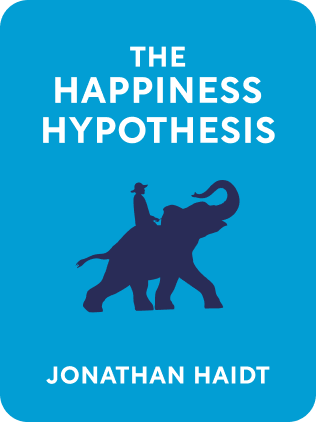

This article is an excerpt from the Shortform book guide to "The Happiness Hypothesis" by Jonathan Haidt. Shortform has the world's best summaries and analyses of books you should be reading.
Like this article? Sign up for a free trial here .
What is the most useful way to think about core virtues? Why does cultivating your virtues lead to a satisfying life?
Cultivating your core virtues is about fulfilling your potential and working on self-improvement. Everybody’s virtues are different but the key to satisfaction in life is to strive towards achieving a set of positive attributes.
Keep reading to learn why strengthening your core virtues will bring you satisfaction.
Cultivate Your Core Virtues
The concept of virtue is often associated with puritanical values and behaviors like rigid piety and abstinence from sex. But is this really the most useful way to think about core virtues?
Core virtue should be defined as the cultivation of the best version of oneself. It is about fulfilling your potential, engaging in constant self-improvement, and striving toward the acquisition of a set of positive attributes or qualities. The specific virtues you aim for depend on your particular strengths and interests. The key is improvement—be it moral, intellectual, or even physical.
Founding Father Benjamin Franklin was the quintessential self-improver, a man who constantly devoted himself to learning new things and acquiring new skills. Throughout his life, Franklin identified specific core virtues that he actively sought to cultivate. In his later years, he looked back on his life with great satisfaction—and attributed his happiness to his relentless pursuit of virtue.
The Ancient Virtues
Of course, the celebration of virtue is hardly new. It goes back to some of the most ancient writings. A range of thinkers from Confucius to Buddha to Aristotle wrote about the need to engage in the right kind of thinking and behavior in order to lead a positive and fulfilling life.
They tended to use allegories, proverbs, and fables to make their points, rather than logical proofs or scientifically tested theories. They put a great deal of stock in behavior, rather than knowledge—it wasn’t what you knew, it was what you did. This was why role models were so important in ancient virtue narratives, serving as examples upon which one was supposed to model proper conduct.
From a psychological perspective, this was rather insightful. Moral instruction that guided an individual to develop an intuitive understanding of how to properly conduct oneself in all situations—and to want to do the right thing—demonstrated a sophisticated understanding by the ancient thinkers of the need for the rider to tame the elephant and guide it toward the pursuit of the right things.

———End of Preview———
Like what you just read? Read the rest of the world's best book summary and analysis of Jonathan Haidt's "The Happiness Hypothesis" at Shortform .
Here's what you'll find in our full The Happiness Hypothesis summary :
- How your emotions determine how satisfied you are in life
- Why you need to struggle in order to succeed
- How to create your own happiness






